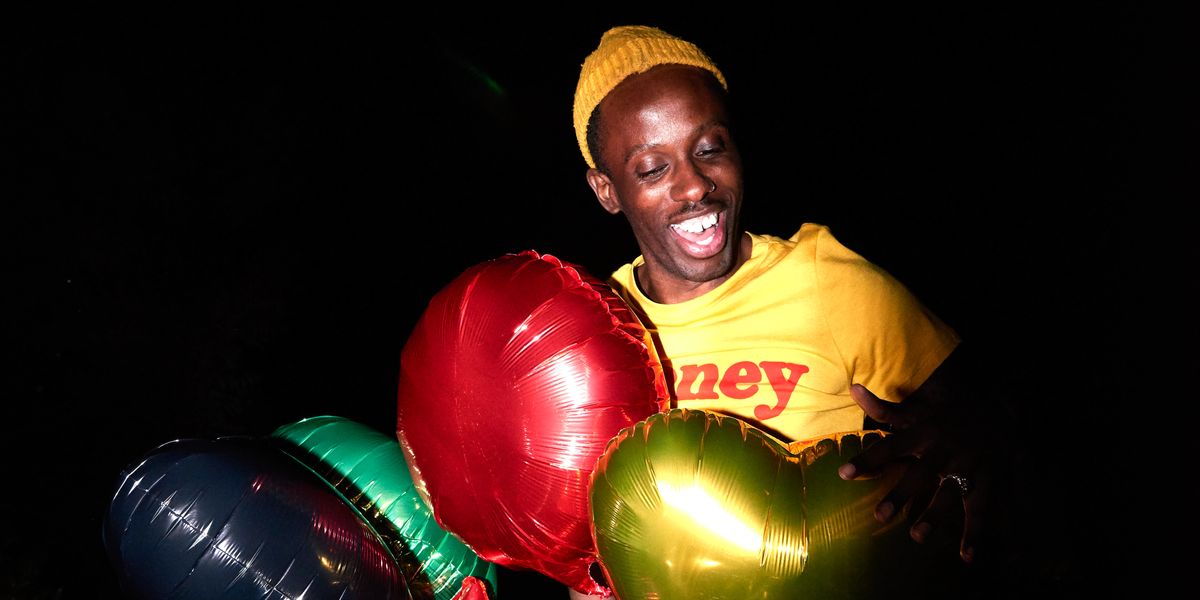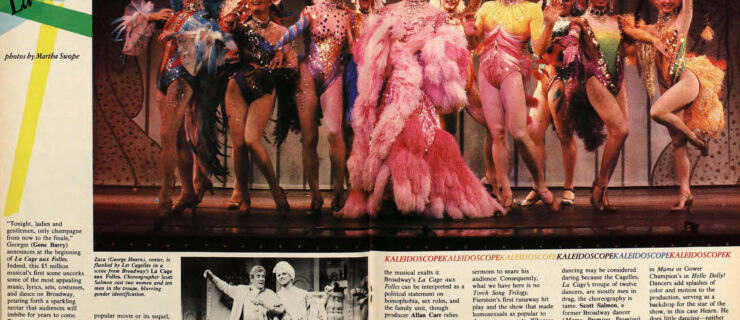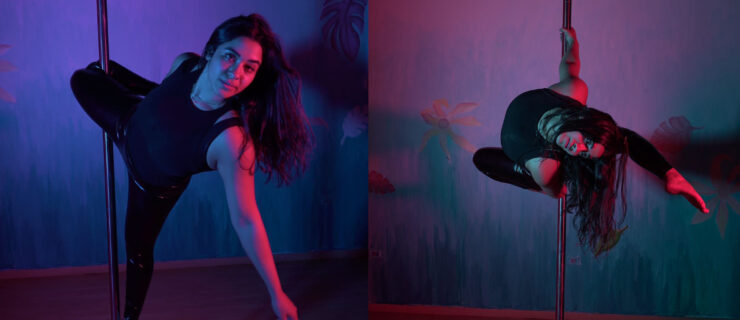So I Got a Grant! (Or Three.) Here's How, and Why It Means Everything and Nothing
A little over a year ago, I wrote an op-ed for Dance Magazine about the grueling, oppressive grant cycle. It was crying into my pillow, really. I was complaining and desperate to share my story. I was fed up with 10 years of applying for grants and having never received one for the research or development of my work. I was tired of the copy-and-paste rejection letters, the lack of feedback, and what seems to be a biased, inconsistent system.
I couldn’t stand that I was made to feel as if I had to ask for permission to be an artist.
I believe in my work—as I imagine all choreographers do. I work hard, have sleepless nights, have emptied bank accounts and participated in other questionable ethics in support of my work and the people that realize it.
At the time of my grant rant, I had even received nominations, awards and fellowships for my work. Notably, the Solange MacArthur Award for New Choreography, a NYFA fellowship, a fellowship at the Center for Ballet and the Arts at NYU, a nomination for Most Innovative Choreography by the fans of Dance Magazine and a Princess Grace Award.
Now, I don’t believe that these are ingredients for deserving a grant. However, something was telling me that I was doing okay. That my work didn’t suck. And that I had promise (in the eyes of my community) as a choreographer.
The awards and fellowships came mostly as a result of past work. They were validation awards, like, “Congratulations you did that” awards. Again, this is not a complaint. I am ever-grateful to be recognized for work that I have done and happy to receive a cash prize to clean up the debt I accrued when I made it.
But I wanted to be trusted to create a work in what we all know to be a true state of creating work: The Unknown.
Perhaps I was naive to think that there must be enough money to go around for everyone to have an idea.
Or maybe I was just rushing my turn in line. Maybe an opportunity does come for each of us and when it’s your turn, you have something to prove.
Again, I am not complaining, I am learning. I can see my former ‘not-granted’ self saying to my ‘artist having received a grant’ self: “At least you got something,” “Shut up,” and “Yes, you do have something to prove!” It feels like everyone is watching me choreograph for my life. Hashtag good luck and don’t f%#! it up.
So, what do I attribute getting a grant to, you ask? Here are three notable things:
- I stayed angry
- I got focused
- I made more work
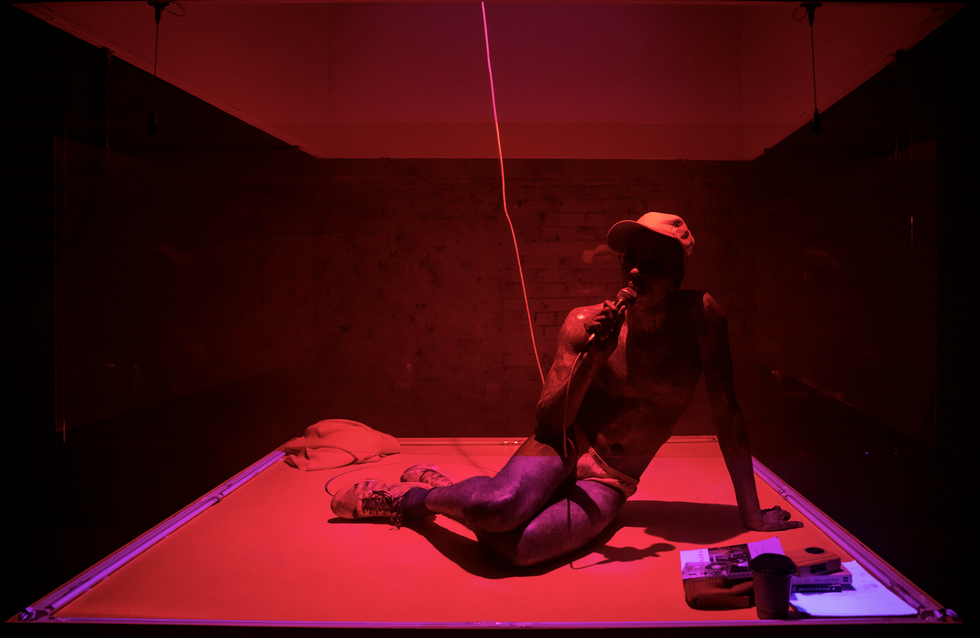
Maria Baranova, Courtesy the feather3r theory
Anger is a kind of energy. I have always believed in that. That said, I never thought about using my anger to write a grant.
A friend, Young Jean Lee, offered to take a look at my Creative Capital application. She felt it was generic, if I remember correctly, and that it had no fire. I felt that I had written out the grant exactly the way they wanted it. I’d taken a number of webinars, retreats and free courses for grant writing and had received positive feedback.
Young Jean Lee asked me to re-write my project proposal and to use as many expletives as I could.
What? Yes! Like, curse my proposal out. She then took out all the expletives and sent the proposal back to me. The results proved to be worth it. My proposal had a fire, a directness, and was saturated with the excitement I had for wanting to do it in the first place. Not the dreary, blithe and overeager proposal that I came to recognize I was writing.
Here’s an example:
WEDNESDAY
is a project that uses Sidney Lumet’s 1975 film “Dog Day Afternoon” as the impetus for a live genre-bending dance-theater production, bringing life to the untold stories of those marginalized and scrutinized because of their race and life expression. The movie is based on a real-life story in the seventies about a gay bank-robber who is short of money for his boyfriend Leon’s sex change. The story we’re telling belongs to Leon, the boyfriend—a cabaret performer whose gender identity is compromised by societal norms and concerns over public health.
And the revise, using the advice I received (with many expletives removed):
This project is a ripping to shreds of “Dog Day Afternoon” and a revolution of what the story is really about which is how f&^K*d up it is that Leon was forced to go to mental institution because of living truthfully as a woman. Wednesday is the name of a cabaret club where people come in and never leave. Instead they get eaten alive by their worst nightmares. It’s a place where film noir meets psychological thriller meets the most extreme overwhelming pop soap opera. It’s a utopia queer story telling. I question what it means that people can not live truthfully And I cherish the opportunities to live my fantasies, utopias, and tell these stories through the performance of art.
This really invigorated me. It turned on a different kind of focus. I deactivated my Facebook. I quit dancing. I stopped teaching. And I took administration and design jobs where I could work from home.
None of this was easy. I love dancing and performing; I always wanted to be a choreographer who also had a career performing simultaneously. I had to give that up. At least for the time being. Or maybe I will make some solos.
My interest in my artistry is not fulfilled by just making work. Because truly that can be done without a grant. I can get up from this computer and make a dance, create a performance. Easy. But it’s not truly what I want to do as an artist.
I feel my calling is to contribute to culture, to be a part of the conversations—via art and performance—that might move our culture forward and subsequently change the world. I believe in building communities by creating work, and offering a creative space for like-minded individuals or even the merely interested.
To ask people to take part in your dream, to realize your vision, you have to give back to them three-fold. It feels like I work for them. And I am okay with that. While I am the lead artist for a shared vision, I am also the lead businessman, the lead worker-bee. It’s my job to find opportunities for my artist community of dancers, actors, performers, filmmakers and photographers to do their work.
I believe that artists have the capacity to change the world and that is a part of what can be upsetting when you aren’t granted the opportunity to do so. It feels like you’re being told your intentions are not worthy, that no one cares. That can’t be true.
So, I expanded.
I looked for more opportunities to create, and articulate my work. This also helped with grant writing. Meeting and working with people who have no idea how you conceive work, think about space or choreograph bodies forces you to rethink how you explain yourself. Every conversation was an opportunity to re-draft a grant proposal.
I also took a position as the artistic director of New Brooklyn Theatre. I wanted to protect and advance my work. I wanted use my skills as a maker and thought-leader to do more for others. I wanted to provide a home for the people I work for.
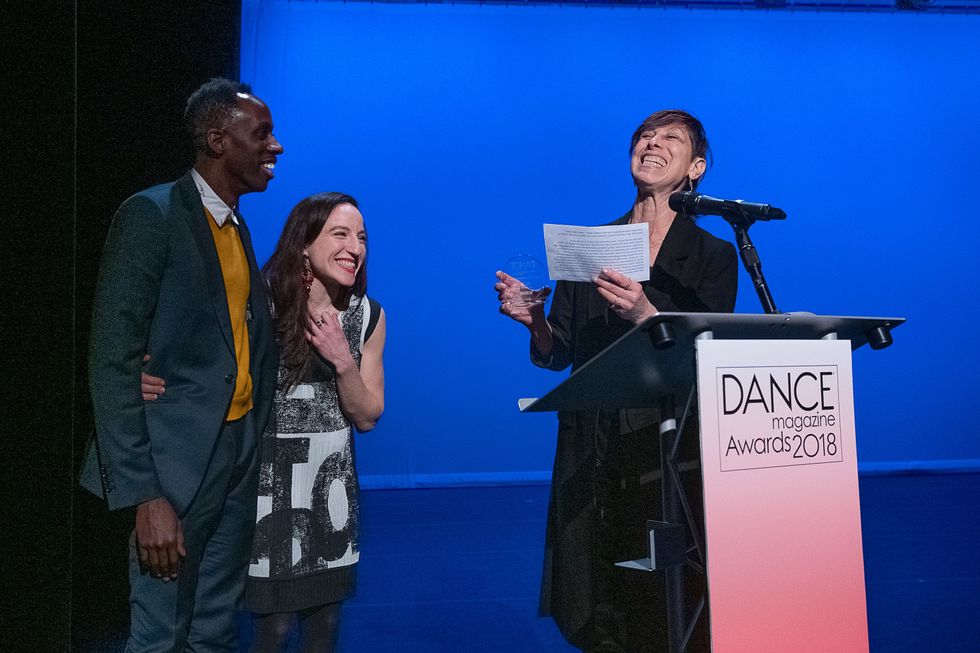 Kelly accepting the Harkness Promise Award along with Ephrat Asherie, from Joan Finkelstein at the Dance Magazine Awards
Kelly accepting the Harkness Promise Award along with Ephrat Asherie, from Joan Finkelstein at the Dance Magazine Awards
Christopher Duggan
Now, while I don’t think any of this is a magic trick, I can’t ignore that the results changed.
My company and I received our first grant, and then another, and then another. The end of my 2018 and the beginning on my 2019 was a true blessing that I am eternally grateful for. I received the inaugural Harkness Promise Award, the inaugural Jerome Hill Artist Fellowship, a 2019 Creative Capital Grant and I was named the 2019-20 Randjelovic/Stryker Resident Commissioned Artist at New York Live Arts, which is one of the biggest awards a mid-career choreographer can receive. This is unbelievable!!!!
So, now I am in the strange position: I have just spent a great deal of time condemning the grant cycle and the institutions that award them and now I am a part of the group of people I was once very jealous of and angry with.
I feel lucky, and I also feel that I have been working very hard for a long time. I do feel deserving, but I also feel that there are so many others that are, too. I still think that granting organizations can be biased, and I also hope that they saw something special in me.
While I believe that in order for artists to write better applications, we deserve better feedback, I also learned that Creative Capital had over 5000 applications and only awarded 54. I don’t know how to make 4,946 individualized feedback letters happen.
I also know that while my company has received a great deal of cash and resources, we still need more and we always will. Just as New York City Ballet and the Brooklyn Academy of Music still have galas and fundraisers every year, we will too. (Shameless plug for our 3rd annual 24-hour $15,000 fundraising Tele-Gala-Dance-A-Thon here.) There is no end to this journey. Just stages.
Keep your journeys going, folx. There are no rules, shortcuts, or perfect top-10 must dos. If I have learned anything, it’s that it’s really complex. But I think I already knew that.
Integrity is the most important thing in the world. Every choreographer’s journey is different. Ask for help. And what works for me: Stay angry, get focused and make as much work as you can as often as you can. No experience can be taken for granted.
I am happy to share my full applications with anyone who is interested in reading them. I think seeing the differences between what a rejected application and an awarded application looks like could be extremely helpful. I am also willing and wanting to read applications of other artists (time-permitting) and offer any assistance that would be helpful. We are a community beyond Kickstarter, Facebook, Instagram and opening night.
Getting a grant has meant everything to me. But the work we make is nothing without a supportive community to share it with. And while I am hardly done complaining, I am hoping to share what I have earned and learned continually and generously.
